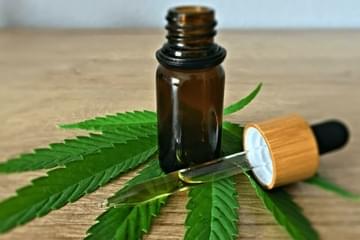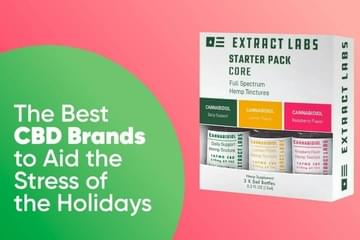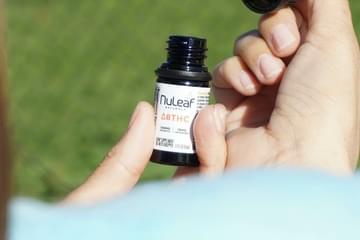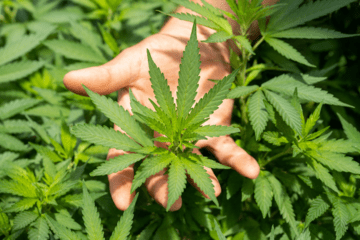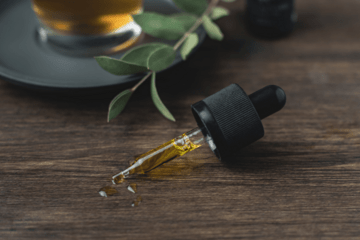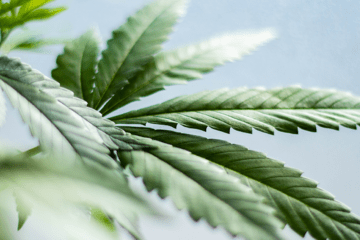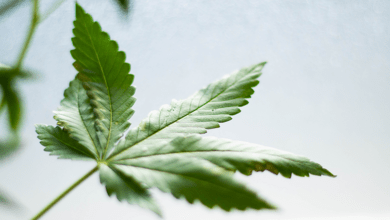
5 Common Myths About CBD
Published on 4/17/21
Since it was federally legalized by the 2018 Farm Bill, CBD has become one of the most prolific substances of the last few years. Many claim it to be a miracle relief for all sorts of ailments, while others still consider it on par with THC and marijuana. Especially since the CBD industry has received little oversight from the federal government, it can be hard to pinpoint what the truth about CBD is. So we're here to help shed some light on CBD and what we know to be true about it.
What is CBD?
 Unsplash
UnsplashCBD stands for cannabidiol. Along with tetrahydrocannabinol (THC), CBD is one of the two most prominent cannabinoids found in cannabis. CBD is found in both types of cannabis plants: marijuana and hemp. It originates from the hemp plant and does not have the psychoactive properties of THC. It is a chemical compound, one of the hundreds within cannabis, that binds with the body's CB2 receptors when ingested or applied topically. CB2 receptors are part of the endocannabinoid system and help regulate things such as the immune system, appetite, inflammation and pain management. When CBD binds to these receptors, it produces a positive reaction that has been found to help alleviate things such as pain and appetite.
Because of its various medicinal applications, CBD products are now more popular than ever, with over 7% of Americans actively using some form of CBD. It was long grouped with marijuana because of its illegal status, but the federal government recognized hemp with less than 0.3% THC as industrial and legalized it with the 2018 Farm Bill. Since then, many people have begun to realize CBD as a unique product. However, there are still CBD oil facts that people don't know and myths that simply aren't true.
CBD Facts and Myths
 CBD Infusionz
CBD InfusionzMyth: Hemp and Marijuana Are the Same
This is not true. Both marijuana and hemp plants belong to the cannabis plant genus, but their chemical makeups differ in important ways. For our purposes, it comes down mostly to THC vs CBD. Marijuana plants have much higher THC levels, while hemp plants have much more CBD and way less THC. Hemp plants innately have very small doses of THC, which is why the federal government legalized most hemp. It is worth underlining that THC and CBD are also not the same. Even though there are similar products like CBD gummies, CBD oil, CBD flower and vapes, products that exclusively CBD-infused are very different from other cannabis products that contain noticeable levels of THC.
Myth: CBD Will Make You High
CBD does not make you high. In fact, marijuana with higher CBD content is likely going to provide a less intense psychoactive effect. CBD balances out THC and is in many ways its antithesis (even though they are molecularly very similar). THC is the chemical compound within marijuana that elicits the "high" feeling associated with marijuana. CBD on its own does not make you high, but you will get high if you ingest products that contain both CBD and THC. Any CBD product you buy legally in stores contains less than 0.3% THC, which means that you will not get high when using a CBD product.
Myth: You Can Get Addicted to CBD
You cannot become addicted to CBD. According to a World Health Organization report from 2017, there have been no known cases of CBD causing dependency. The report also stated that there has been no evidence of CBD causing any public health issues. Because of its , and psychoactive effects, THC has been known to cause dependency in some users, but even that number is low compared to opioids (which have been prolifically and legally prescribed by doctors for decades). CBD, on the other hand, does not cause addiction in any capacity, so far as we know.
Myth: CBD Is a Cure-All Medicine
CBD is not a medicine, it is a medicinal supplement. The list of CBD benefits is impressive, but not all of them are scientifically founded. In fact, because of its legal status up until the last few years, CBD has not been studied nearly as much as other compounds with medicinal properties. There are a few CBD effects, however, that have shown medicinal promise:
- Decreased frequency and intensity seizures (the only FDA-approved CBD drug is Epidiolex, which treats two forms of epilepsy).
- Reduced pain and inflammation.
- Alleviation from various anxiety disorders.
- Reduced-intensity of post-traumatic stress disorder (PTSD) side effects.
Yes, CBD shows a lot of promise as an alternative medicinal supplement. A lot of people swear by its ability to calm their nerves and use CBD oil for pain relief. However, CBD also needs to be taken responsibly, and that includes knowing that it isn't a cure-all. Hopefully, as more studies are conducted and our understanding of CBD grows, we can more definitively praise the positive benefits of CBD.
There is Little Research On CBD Benefits
 Unsplash
UnsplashWhile our understanding of CBD is still relatively limited because of legal restrictions in the past, scientists are now working to catch up on their understanding of it. What is CBD flower capable of treating? How to use CBD oil for pain in the most effective ways? How effective is CBD in treating PTSD and anxiety? In what ways can CBD help cancer patients? These are questions being asked by the medical community, and new studies are being done every day to find the answers.
CBD means something different to everyone. Let us know your experiences with CBD and what you think about its continued rise in popularity! Comment below!









